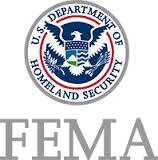RALEIGH, NC — Disaster survivors who sustained losses from Hurricane Matthew and the flooding that followed are receiving help from many nonprofit and faith-based organizations in North Carolina.
The North Carolina Baptist Men’s Ministry Disaster Relief, United Methodists, Catholic Charities, Mennonite Disaster Service, the United Way, the American Red Cross, and dozens of other organizations are providing assistance to survivors who have unmet needs as a result of the disaster. Voluntary organizations provide a wide range of assistance to disaster survivors, including flood debris clean-up, shelter, food, clothing, counseling, home repairs and reconstruction.
“The recovery from Hurricane Matthew is far from over,” said Mike Sprayberry, North Carolina’s Emergency Management director. “Volunteer organizations are a crucial part in helping people recover. Because there is much work left to be done, I encourage anyone who is able to volunteer with these organizations to please do so.”
The organizations belong to the North Carolina chapter of the National Voluntary Organizations Active in Disasters (NVOAD), a coalition of nonprofit organizations that respond to disasters as part of their overall mission and provide a forum where organizations can share knowledge and resources throughout the entire disaster cycle—preparation, response and recovery.
“After a disaster, the whole community participates in the recovery process, and these voluntary organizations play a vital role in the effort,” said Libby Turner, federal coordinating officer for the recovery operation in North Carolina. “FEMA is working hard in supporting our state partners at North Carolina Emergency Management to provide assistance to survivors, but there are many additional needs that can be met by these organizations.”
FEMA’s Voluntary Agency Liaisons (VALs) assist these voluntary, faith-based and community organizations with federal programs, deadlines, coordination of effort and donation management. They also identify special-needs populations and help applicants avoid duplication of benefits. In addition, liaisons educate, guide and promote long-term recovery in affected communities to bring back a sense of normalcy to the residents.
In some instances, donated resources by voluntary organizations can help reduce municipal costs in disaster recovery. If emergency work is organized by an eligible Public Assistance program applicant, such as a local or tribal government, and proper documentation is submitted, those costs may qualify for an offset to its share under the FEMA Public Assistance Donated Resources Program
Examples of eligible work include, but are not limited to: removing eligible debris, filling and placing sandbags, donating equipment and materials for use in emergency response. Search and rescue, when part of organized response operations, and mass care and sheltering of disaster survivors are also eligible.
Disaster survivors in North Carolina can call 2-1-1 or log-on at nc211.org to find available services in their community. North Carolinians who want to know more about the work of the national and local volunteer organizations should visit nvoad.org or ncvoad.org/cms/.


